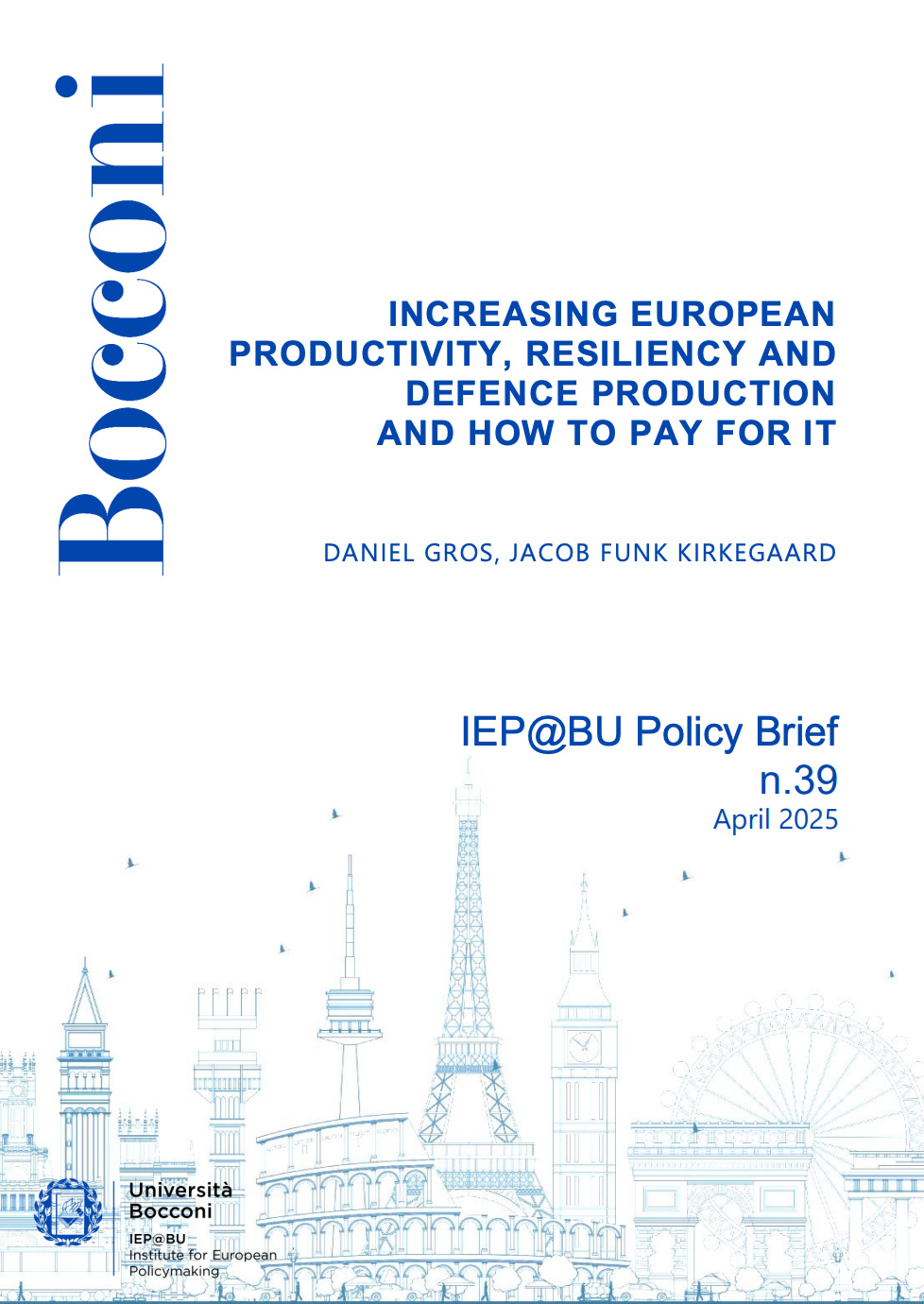The increase in national defence expenditure provides an occasion to strengthen the European high-tech industry. But European-wide competition in the market for weapons is key to keep costs in check.
Download the Policy Brief
Executive Summary
The European economy is stalling. Growth rates have settled at around 1%, making the EU overall, and the euro area in particular, the slowest growing of the major economic areas globally.
Europe is near to stagnation although over the last decades, Member States have undertaken many structural reforms and the level of education of the European workforce has continued to improve.
A lack of capital is unlikely to have been the root cause of lower productivity growth, given that the investment rate in the EU has been, until very recently, equal to that of the US.
The real problem is that the return on capital is lower in most of the EU than in the US, suggesting that it is the composition of investment, rather than its volume, that is the problem.
Moreover, the impact of structural reforms at the national level seems to have been more than offset by an increase in EU-level regulation.
The challenges to the European economy are now magnified by the upheaval in the global trading system through the ‘reciprocal’ tariffs of the US. To restart growth, the EU needs to focus on productivity and innovation.
This does not require hundreds of billions of euros in new expenditure, but rather a sharp focus on the efficiency of existing budgets, couples with innovation-friendly rulemaking.
Single market rules need to be streamlined, and financial market rules need to be adjusted to encourage more investment in risk capital by both households and long-term savings institutions.
ESG rules need to be adjusted to take into account that defence has become a key social goal.
The increase in national defence expenditure provides an occasion to strengthen the European high-tech industry. But European-wide competition in the market for weapons is key to keep costs in check.
The IEP@BU Management Council
Catherine De Vries, IEP@BU President
Daniel Gros, IEP@BU Director
Arnstein Assve, Professor in Demography at Bocconi University
Sylvie Goulard, IEP@BU vice-President, Professor of Practice in Global Affairs at SDA Bocconi School of Management
Silvia Colombo, IEP@BU Deputy Director
Carlo Altomonte, Associate Professor at Bocconi University and Associate Dean for Stakeholder Engagement Programs at SDA Bocconi School of Management
Valentina Bosetti, professor of Environmental and Climate Change Economics at Bocconi University
Elena Carletti, Dean for Research and Professor of Finance at Bocconi University
Eleanor Spaventa, Professor of European Union Law at Bocconi Law School










Share this post